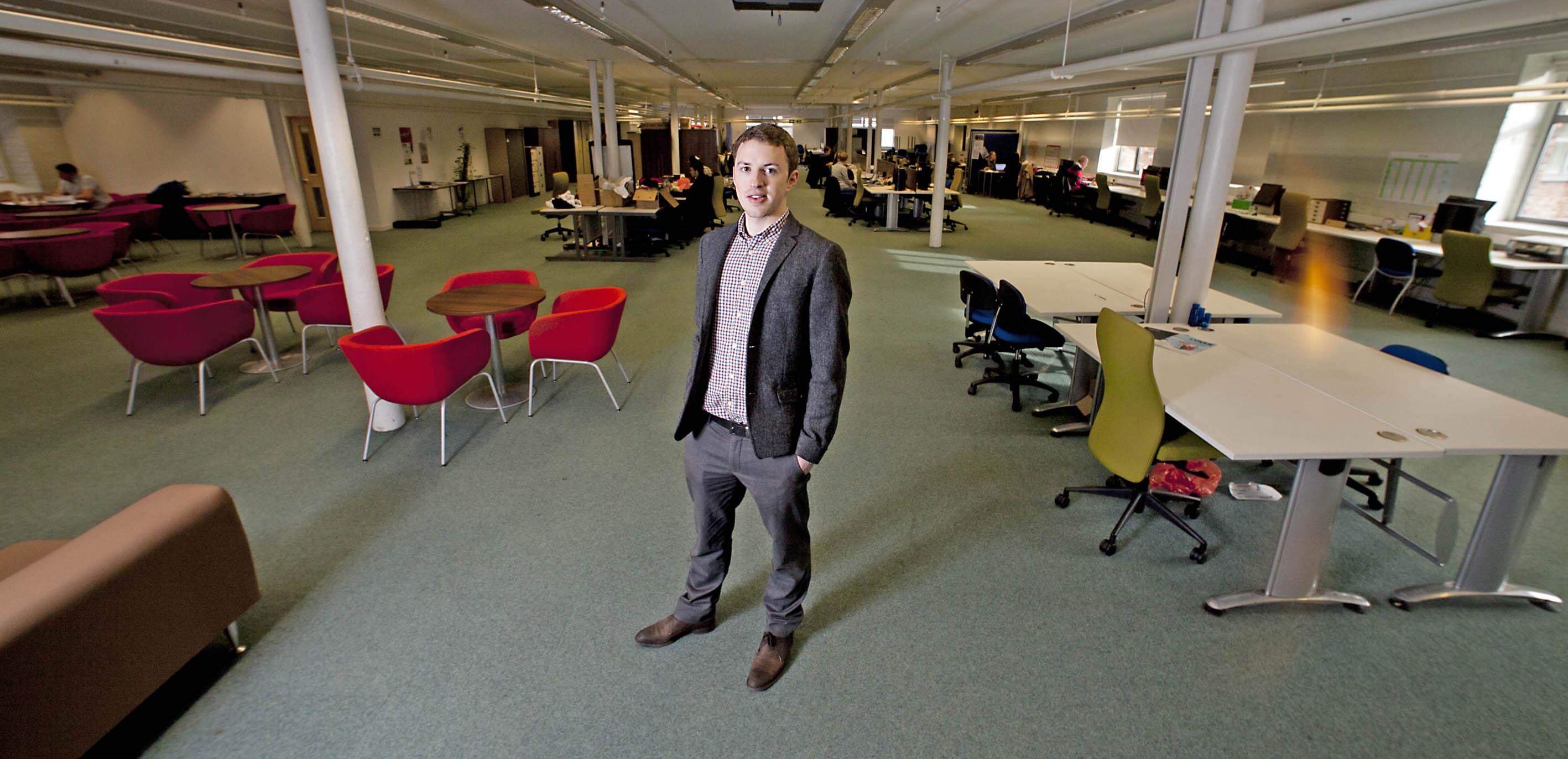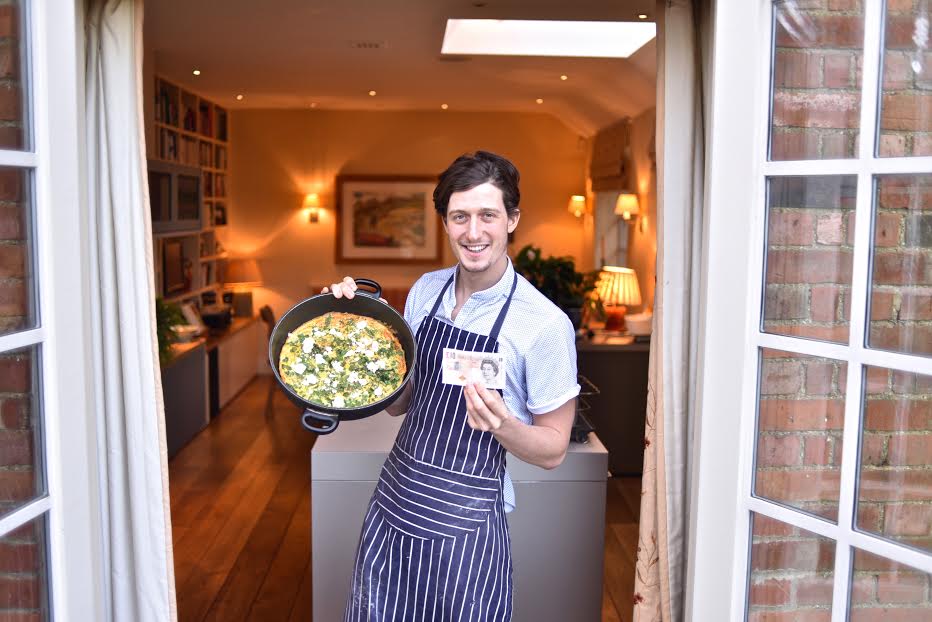
Your time at university will fly by and be over before you know it – just ask any graduate. How you use this period can help build a strong foundation for the rest of your life. I’ve spent the past 12 months interviewing more than 50 of the UK’s most successful students, who offered their advice on how to succeed during this period of your life. Here are 10 of their top tips.
1. Owen Burek – CEO of Save the Student!, a business he started at university and is now the leading student money website in the UK
University of Manchester, geography
Owen’s advice relates to his field of expertise – student finance. It’s reported that 70 per cent of students live on their overdraft and 80 per cent of students always worry about money. Before starting their first term, every student should switch banks and find the best offer available.
He said: “Before freshers’ week, the big banks tend to release their special deals to entice new students into opening accounts with them. Some banks have offered four-year 16-25 Railcards, larger 0 per cent overdrafts or higher interest on balances,” he said.
Regardless of what year you are in at university, you should try this, and shop around every year you are in academia for the best option.

10 essential articles on student finance help and advice
2. Julius Dein – magician and entrepreneur. While at university, Julius performed at parties thrown by the likes of Nelson Mandela, Kelly Rowland, Russell Brand and One Direction
King's College London, international relations
Freshers’ week can often be a daunting experience even for the biggest of extroverts. You are thrust into a new environment away from home with thousands of people you have never met before. Julius’ advice on becoming more confident is to regularly partake in actions that make you feel uncomfortable.
“I don’t think I’m naturally more confident than other people; I just enjoy getting out of my comfort zone. That’s how I have developed my confidence. Getting out there is so underrated; it’s crucial to being happy and confident in life,” he said.
Five ways to make friends at university
3. Lily Owsley MBE was a member of the undefeated GB hockey team that won gold at the 2016 Rio Olympics
University of Birmingham, sports, exercise and rehabilitation
As the fun of freshers’ week begins to fade, the essays and exams will start piling up. A lot of students struggle to deal with the pressures that come with deadlines and exam halls.
Lily has a lot of experience of dealing with pressure, including performing in an Olympic final. Her advice is to focus on the things that you can control and forget the things you can’t.
“Come exam time, an activity I found useful to help deal with pressure was to write down three things that I wanted to accomplish. For example, today I want to:
1. Look through the last two weeks’ lectures.
2. I want to write 1,000 words.
3. I want to read three journals.
Then I don’t drive myself crazy thinking what I could have done, or if I’m ready for this exam. I focus on what I can control,” she said.
Using an academic learning diary
4. Ben Lebus – founder of viral cooking phenomenon Mob Kitchen, an online publishing company producing short “how-to” food videos
University of Edinburgh, history
Your mum’s home-cooked meals are nothing but a memory at university so you’re going to have to learn your own dishes, unless you want to spend a significant amount of your student loan on takeaways. An issue with a lot of meals that students make is that they can be lacking in flavour. Here are some ingredients Ben says you should stock up on that will help spice up your meals.
1. Sea salt – “You can get four boxes for £5; it tastes so much better than regular table salt.”
2. Cumin – “With a dash of this you can make any dish taste like you are in Morocco or Africa.”
3. Smoked paprika – “You can make amazing fajitas and tacos with this. It enables you to add a Mexican vibe to any dish.”
4. Chilli flakes – “They’re so versatile and can be used in so many dishes.”
5. Oregano – “This is one of the best dried herbs to have and it can completely transform any recipe.”
6. Coconut milk – “This is so useful for making any kinds of curry or soups – something I fully recommend stocking up on in bulk!”
“You can get all these ingredients for less than £15, and they will last you for an entire term,” Ben said.

Five steps to eating well at university
5. Lucy Moon – YouTube and social media personality with more than 300,000 subscribers to her videos (main picture)
Soas, University of London, history
Procrastination is that invisible feeling of resistance that prevents you from doing the things you know you should be doing. Lucy managed to deal with procrastination at university through a productivity method referred to as the Pomodoro Technique.
This practice involves 25 minutes of work, followed by a five-minute break. It is incredibly effective for starting a task you are putting off, as it takes something challenging and daunting like starting a 2,500-word essay or revising for a three-hour exam, and it turns into something simple that anyone can do – work for just 25 minutes.
Lucy said: “I couldn’t recommend the Pomodoro Technique enough. It enabled me to focus for longer periods of time and produce better work.”
5 revision techniques to help you ace exam season (plus 7 more unusual approaches)
6. Lex and Lainey Griffin – fitness models, sponsored athletes and personal trainers
Lex: Newcastle University, biology. Lainey: Dublin Institute of Technology, biomedical sciences
Weight gain is a well-documented phenomenon for university students. A review concluded that on average, 60 per cent of students gain weight in just their first year alone, with the average increase coming in at about 7.5lbs, nearly 3.5kg.
Lainey said that a lot of students confuse eating healthy food with having a balanced diet. “A bag of nuts is ‘healthy’, it’s organic and it’s good for you – but it’s a bag of fat! You need to balance it with a good amount of protein and carbs and make sure that you’re eating a well-rounded, balanced diet. A balanced diet is crucial to success at university.”
Lex said to stay mindful of what you consume on a night out. “A really easy tip to ensure you don’t overeat after a night out is to eat beforehand. Doing this will prevent you from piling on a load of weight. If you do have to eat when you’re out, skip the cheesy chips and go for a grilled chicken pita instead.”
Making the most of your university experience
7. Phil Daneshyar – student entrepreneur who balanced getting a first-class honours degree with receiving £250,000 worth of investment for his hydration tracking start-up Thirsti
University of York, PPE
“I found having a morning routine beneficial while at university. Every morning, I would start my day by doing 10 minutes of meditation and checking into the present moment. After doing this, I felt my productivity skyrocketed, and my stress and anxiety levels plummeted,” he said.
A recent study at Stanford University found that a meditation course increased activity in the prefrontal cortex, the region of the brain that helps to regulate our emotions. Another study at Michigan State University found that people who practised meditation could return to a neutral emotional state much faster than non-meditators.
University mental health: taking student well-being seriously
8. Em Sheldon – blogger, entrepreneur and online influencer. During her time at university, she also worked as a broadcast journalist, reporting on the Olympics and the Baftas, interviewing the likes of Bradley Cooper and George Clooney
University of Leeds, broadcast journalism
Managing your time at university can be really difficult. Trying to balance your academic, social and sleep commitments can be a struggle for a lot of students and can often result in their missing out on one of those three. Em had to juggle her blog, business, course and social life while at university. She did it by regularly writing down and planning what she had to do each week.
“I loved making lists as they really helped me visualise my workloads. It meant I could organise everything I had to do and balance my time well,” she said.
There are plenty of free apps that will help you manage your time at university. Wunderlist helps you create to-do lists, as well as a set of completion dates with push notification reminders. Another useful tool is Dayboard. It reminds you of the five most important things you have to do that day, and it can even block your go-to procrastination websites until you complete the tasks on your to-do list.

9. Ben Jeffries – entrepreneur and founder of Influencer, a marketing agency that connects global brands with people who have a large following on social media platforms
University of Bath, business administration
Ben advises you to take risks at university and not worry about failing.
He said: “We’re young, we don’t have to support a family, so we can take much bigger risks. If what you try fails, it’s not the end of the world. Did you know James Dyson created 5,126 failed prototypes of his vacuum before finally succeeding?”
My advice for prospective students
10. Nick Hampson was the co-founder of the international student music platform Vulture Sessions. The platform expanded in the UK to Reading, Oxford, Manchester and London as well as in the US to Miami, Indiana, Virginia and Harvard
University of Oxford, music
“Don’t waste a single hour. University is one of the best times in your life where everything is possible, and it goes by faster than you can imagine. It’s a tiny window of time where there is a support system that allows you to achieve just about anything you want if you work hard enough. That’s a special thing,” said Nick.

George MacGill is the author of Uni Lifehacks – Insights from the UK’s Most Successful Students and is a graduate of the University of York
Read more: #THEUniAdvice: social media campaign reveals top college tips




















Have your say